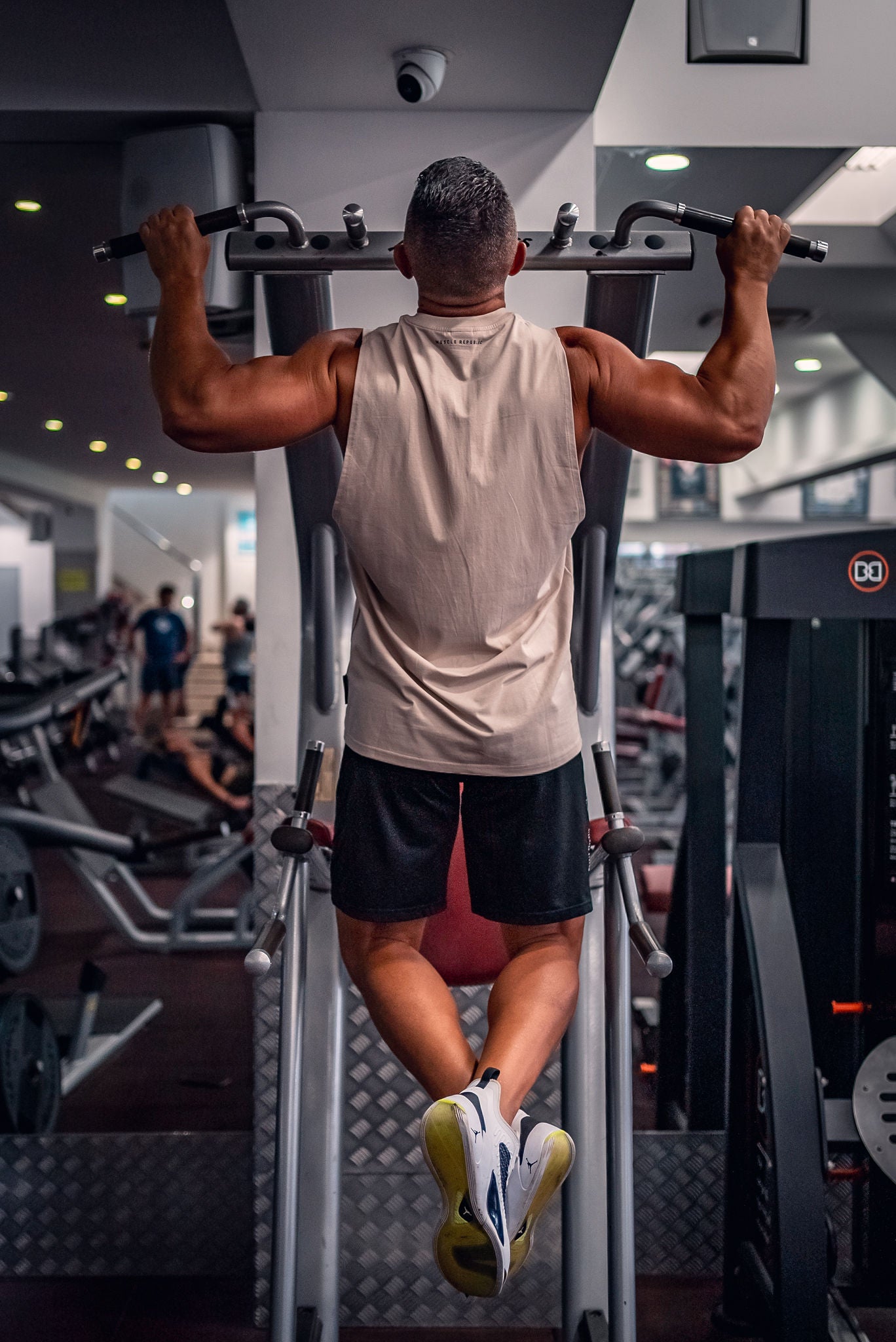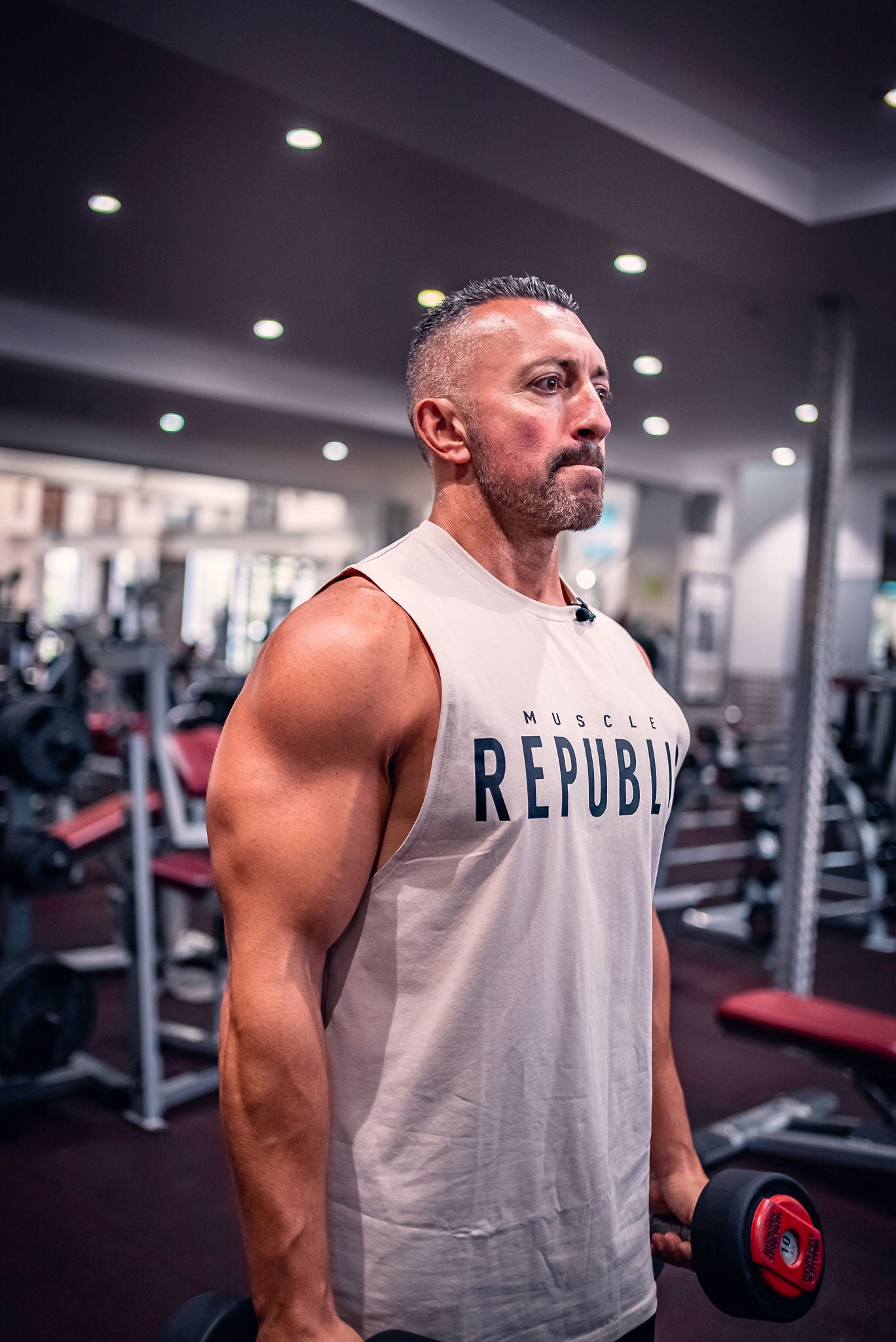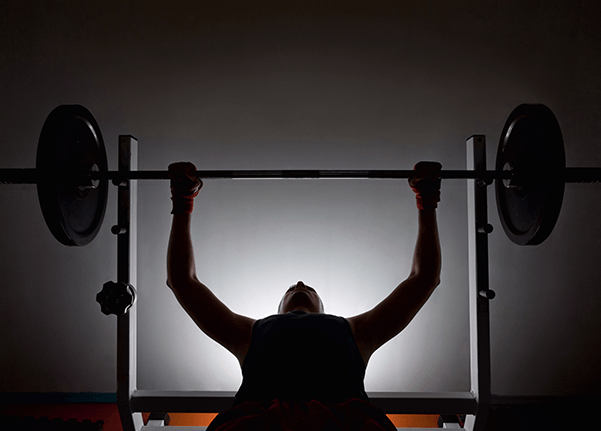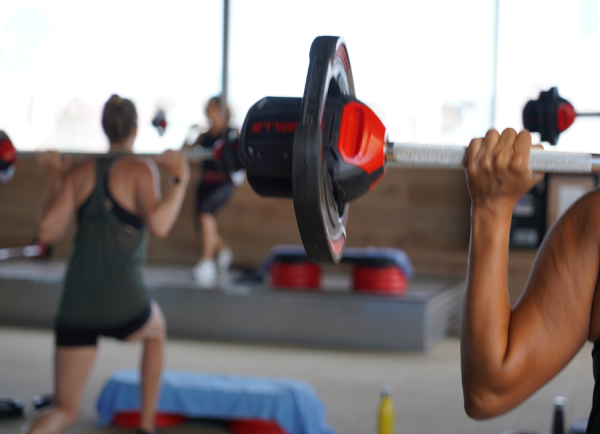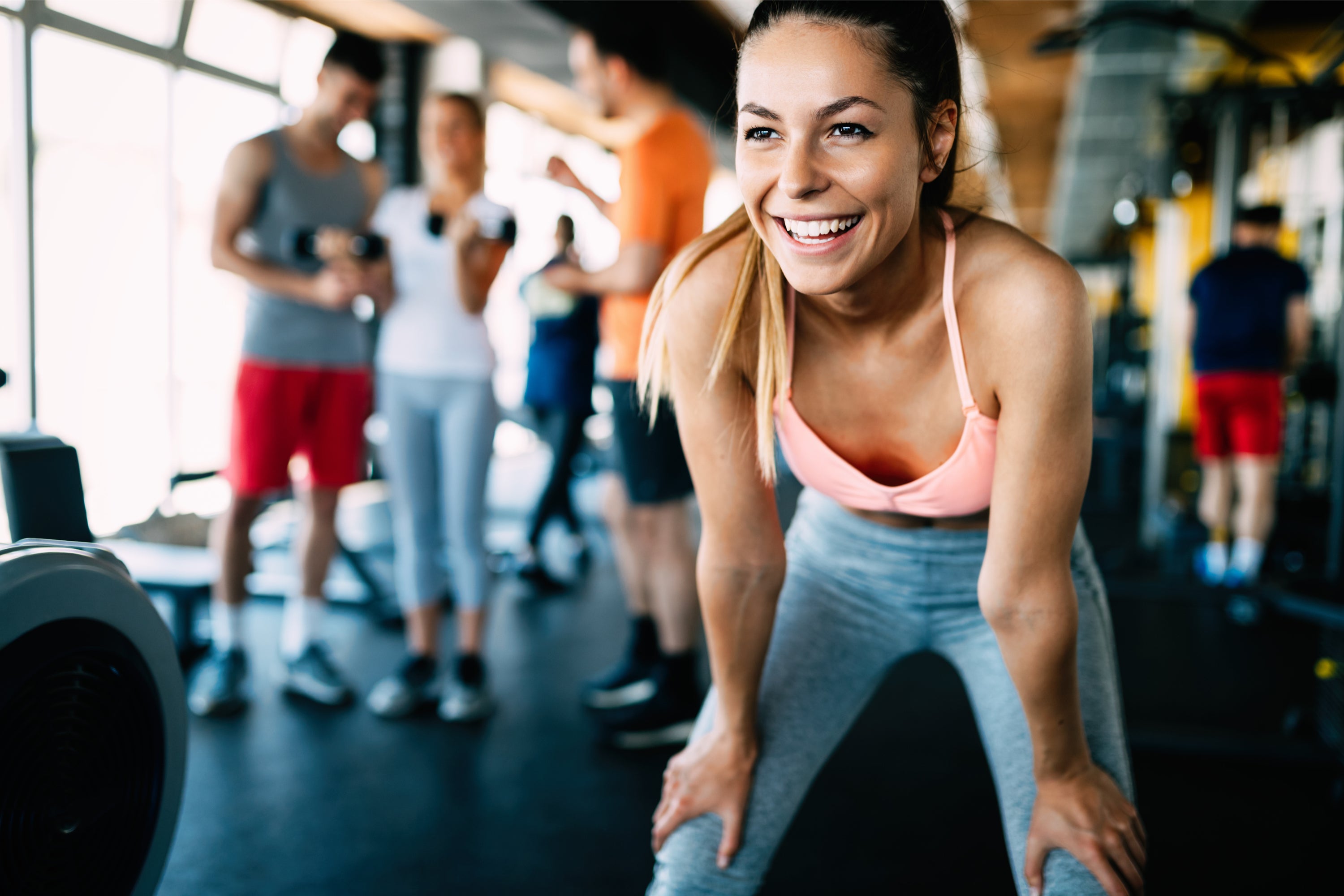
Many of us neglect this vital fitness component. Do you?
We are living in a world that conditions us to thrive in a frenzied spiral of constant connectivity and over scheduling. Our society has normalised this way of being, leaving us to feel inferior if we can’t keep up.
Like clockwork, we progress through the same patterns of thinking and behaviour, unaware that this lifestyle is detrimental to our physical and emotional well being.
In our fast paced, highly connected society, it is now more important than ever to devote time to ourselves, time where we can experience the ebb and flow of our thoughts in the absence of action or judgement.
Meditation provides a gateway to unlocking this inner feeling of tranquillity. Devoting as little as 10 minutes a day enables us to become a more relaxed, balanced, present and grateful being.
I got the opportunity to catch up with Titan’s brilliant meditation teacher, Tom Sullivan to understand more about the importance of meditation in our hyper active society.
If you’re feeling burnt out and stressed, or even as though you’re not acting as your true authentic self, I would highly recommend the following Q&A.
Can you please tell me a little bit about yourself and what sparked your interest in meditation?
I grew up in a small town in NZ, a real typical ‘farming and rugby’ type situation. I always had a great appreciation for the outdoors but also put material goals as a main measure of success from a young age.
It wasn’t until I left to live in the UK via SE Asia and India did my interest in something larger than myself and these material things begin to form.
I experienced so many new encounters and people that made me take a conscious step back and realise that the measures that I had in place to find a level of happiness and being contempt might be wrong.
Shortly after I begun to realise that everything began and ended in my mind, I took an interest in how to bring a greater level of control and understanding in the inner landscape – which is what meditation is all about.
How has practising meditation enriched your life?
Oh wow, in so many ways. I’ve always been someone that spends a lot of time in their thoughts (and often a lot of those were negative or self-depreciating), so one of the biggest first things that affected me was understanding that I am not my thoughts.
If I can learn to choose to either ‘think’ a thought or let it go, it’s a powerful tool to choose a happier life.
One of the other biggest ways it enriched my life was to increase my concentration levels and ability to stay present. I found it kept me much more involved in work meetings and personal conversations, being able to listen more without drifting off.
It also just gave me a level of peace and quiet from the endless mind chatter, and allowed me to sleep better and much deeper, leaving me feeling more rested and calm.
You loved meditation so much that you began to teach, what are the main principles you hope to instil into your pupils through this practice?
Definitely the key principle in my classes is to learn to be still. Today we live in a way where we are in almost constant stimulation, especially now with how prevalent our phones and connectivity has become.
You can think of meditation being the direct opposite or even antidote to this way of life.
Not that its not great to have all of these tools these days, but we leave ourselves really vulnerable to burnout if we don’t take time to consciously allow our bodies to rest and recover.
Stillness in both the body and mind provide such a welcome relief from our lifestyles, it literally feels like plugging yourself in a power socket.
It’s important to note that even if this is what you strive for, you will receive a host of other benefits at the same time.
Many people are dedicated to training their physical bodies, however neglect to train the mind. How can meditation help improve our functioning in everyday life?
Firstly, it’s important to acknowledge the great effect that physical training (along with good eating) has on the mind, so I feel that these things go hand in hand.
But meditation adds layers that the physical cannot reach, and the good news is that these benefits are not only proven, they are also measured, tested and recorded and numerous medical journals.
Just some of the proven benefits are stress reduction, improved sense of well being, better focus, gives a greater sense of connectivity and empathy, increased creativity, better memory, helps overcomes addictions, enhances your immune system and reduces physical and emotional pain.
You teach the meditation classes here at Titan, can you please tell us a little bit about what the classes involve?
My classes give an experienced meditator or complete beginner a chance to explore different methods to find stillness and explore their own inner landscape.
I share a number of different techniques and teachings that I have picked up from my 10 years or so in the practice.
I also share as much information, tools and tips that I can to help build and maintain your own practice, something so important to really experience the most that you can from meditation.
It’s also super relaxed and friendly, so if you have thought about giving it a try please do come along and give it a go!
What current projects are you working on and do you have anything exciting planned in the future?
At the moment I’m writing a handbook that covers the fundamentals on building a successful practice.
Teaching is a continuous journey of discovery and presentation, so there is some fine tuning going on with a program that I am going to roll out next year as well which is a 6 week practice to delve deep into personal stillness.
There might even be something coming out for Titan members, so watch this space!
If you enjoyed this article, please subscribe to our emailing list to receive more inspirational and educational content. Also, if you haven’t already, please follow us on Instagram, Facebook and YouTube.
Like clockwork, we progress through the same patterns of thinking and behaviour, unaware that this lifestyle is detrimental to our physical and emotional well being.
In our fast paced, highly connected society, it is now more important than ever to devote time to ourselves, time where we can experience the ebb and flow of our thoughts in the absence of action or judgement.
Meditation provides a gateway to unlocking this inner feeling of tranquillity. Devoting as little as 10 minutes a day enables us to become a more relaxed, balanced, present and grateful being.
I got the opportunity to catch up with Titan’s brilliant meditation teacher, Tom Sullivan to understand more about the importance of meditation in our hyper active society.
If you’re feeling burnt out and stressed, or even as though you’re not acting as your true authentic self, I would highly recommend the following Q&A.
Can you please tell me a little bit about yourself and what sparked your interest in meditation?
I grew up in a small town in NZ, a real typical ‘farming and rugby’ type situation. I always had a great appreciation for the outdoors but also put material goals as a main measure of success from a young age.
It wasn’t until I left to live in the UK via SE Asia and India did my interest in something larger than myself and these material things begin to form.
I experienced so many new encounters and people that made me take a conscious step back and realise that the measures that I had in place to find a level of happiness and being contempt might be wrong.
Shortly after I begun to realise that everything began and ended in my mind, I took an interest in how to bring a greater level of control and understanding in the inner landscape – which is what meditation is all about.
How has practising meditation enriched your life?
Oh wow, in so many ways. I’ve always been someone that spends a lot of time in their thoughts (and often a lot of those were negative or self-depreciating), so one of the biggest first things that affected me was understanding that I am not my thoughts.
If I can learn to choose to either ‘think’ a thought or let it go, it’s a powerful tool to choose a happier life.
One of the other biggest ways it enriched my life was to increase my concentration levels and ability to stay present. I found it kept me much more involved in work meetings and personal conversations, being able to listen more without drifting off.
It also just gave me a level of peace and quiet from the endless mind chatter, and allowed me to sleep better and much deeper, leaving me feeling more rested and calm.
You loved meditation so much that you began to teach, what are the main principles you hope to instil into your pupils through this practice?
Definitely the key principle in my classes is to learn to be still. Today we live in a way where we are in almost constant stimulation, especially now with how prevalent our phones and connectivity has become.
You can think of meditation being the direct opposite or even antidote to this way of life.
Not that its not great to have all of these tools these days, but we leave ourselves really vulnerable to burnout if we don’t take time to consciously allow our bodies to rest and recover.
Stillness in both the body and mind provide such a welcome relief from our lifestyles, it literally feels like plugging yourself in a power socket.
It’s important to note that even if this is what you strive for, you will receive a host of other benefits at the same time.
Many people are dedicated to training their physical bodies, however neglect to train the mind. How can meditation help improve our functioning in everyday life?
Firstly, it’s important to acknowledge the great effect that physical training (along with good eating) has on the mind, so I feel that these things go hand in hand.
But meditation adds layers that the physical cannot reach, and the good news is that these benefits are not only proven, they are also measured, tested and recorded and numerous medical journals.
Just some of the proven benefits are stress reduction, improved sense of well being, better focus, gives a greater sense of connectivity and empathy, increased creativity, better memory, helps overcomes addictions, enhances your immune system and reduces physical and emotional pain.
You teach the meditation classes here at Titan, can you please tell us a little bit about what the classes involve?
My classes give an experienced meditator or complete beginner a chance to explore different methods to find stillness and explore their own inner landscape.
I share a number of different techniques and teachings that I have picked up from my 10 years or so in the practice.
I also share as much information, tools and tips that I can to help build and maintain your own practice, something so important to really experience the most that you can from meditation.
It’s also super relaxed and friendly, so if you have thought about giving it a try please do come along and give it a go!
What current projects are you working on and do you have anything exciting planned in the future?
At the moment I’m writing a handbook that covers the fundamentals on building a successful practice.
Teaching is a continuous journey of discovery and presentation, so there is some fine tuning going on with a program that I am going to roll out next year as well which is a 6 week practice to delve deep into personal stillness.
There might even be something coming out for Titan members, so watch this space!
If you enjoyed this article, please subscribe to our emailing list to receive more inspirational and educational content. Also, if you haven’t already, please follow us on Instagram, Facebook and YouTube.
Previous post
Revolutionise your workout by doing this one simple thing
Next post

